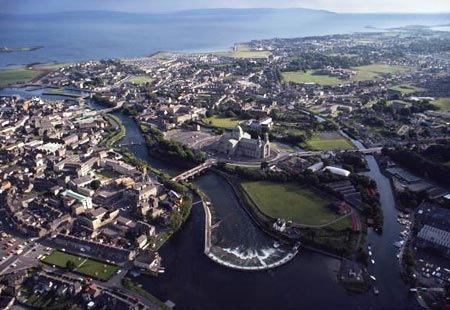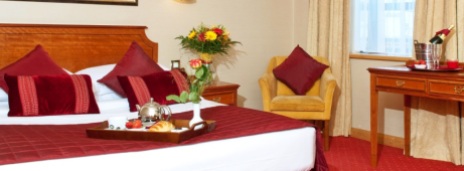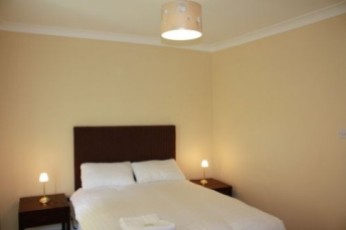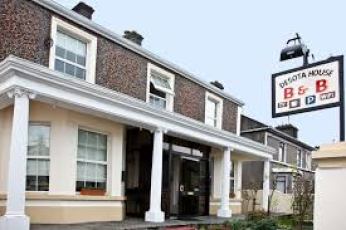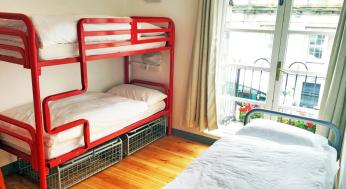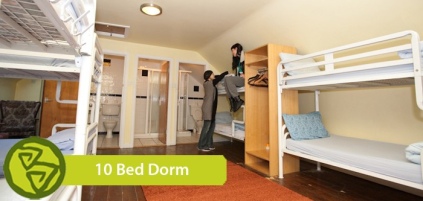
It is our pleasure to publish our conference programme and schedule of events for IHSA2016. Any queries may be addressed to ihsa2016@gmail.com
Eamonn & Committee
***
Friday, 19 February
1900 Arrival & Exhibition, Moore Institute Rooms, Ground floor, Hardiman Research Building
1930 Speeches.
Eamonn T. Gardiner, MC & Lead Organiser
Dr. Sarah-Anne Buckley, Chair, IHSA National Committee
Prof. Dáibhí Ó Crónín, History Department Welcome
Prof. Steven Ellis, Formal Opening of Conference
2000 Reception & Exhibition
2100 Social: History Quiz in College Bar.
Saturday, 20 February
0830-0855 Registration (€15) & Morning Coffee 1 in Arts Millennium Building.
0855-0900 Welcome/Health & Safety Briefing
0900-1015 Round A of Panels (75 mins).
1015-1035 Coffee Break 2
1035-1150 Round B of Panels (75 mins)
1150-1210 Coffee Break 3
1210-1325 Round C of Panels (75 mins)
1325-1335 Move from Arts Millennium to College Bar (10 mins)
1335-1420 Lunch (College Bar)/AGM (AM Building) (45 mins)
1420-1430 Move from College Bar to Arts Millennium for Workshop.
1430-1530 Workshop: Research Funding Opportunities (60 mins).
1530-1535 Leave Workshop and move to rooms for Round D
1535-1650 Round D of Panels (75 mins)
1650-1710 Coffee Break 4
1710-1825 Round E of Panels (75 mins)
1825-1835 Closing remarks and final reminder dinner timings & Sunday programme.
1835-2030 Arrive at Harbour Hotel for Pre-Meal Reception
2030-2200 Dinner (Prosecco Reception & 5 Courses, €25)
2200-2245 Eamonn T. Gardiner MC.
Introduction by Dr. Mary Harris, Senior Lecturer, NUI Galway & ‘A Nation Rising’, 1916 Commemorative Programme Coordinator
After-Dinner Speaker: Professor Emeritus Nicholas Canny, NUIG. http://erc.europa.eu/organisation/canny-nicholas
2245-2315 Prize giving
2315+ Post Dinner & Move to other venues.
Sunday, 21 February
1200-1300 Walking Tour of Galway.
Early Modern & Revolutionary Galway
Round A 09:00-10:15
(A1) Narratives from Christian Ireland
Chair: Kieran Hoare
- Ossory on the Eve of the Reformation
- Bernadette O’Brien, NUI Galway
- Brigit and pregnant women: discussion on the issue
- Dmitrii Glass, Mary Immaculate College
- Is there a Problem of Saint Patrick? If so, is there a solution?
- Nathan Dunphy, NUI Galway
(A2) Twentieth-Century Philosophical, Logical and Cultural Approaches
Chair: Dr. Tomás Finn
- Catholic anti-communism, the Cold War, and peace and nuclear disarmament campaigns in Ireland.
- Gerard Madden, NUI Galway
- ‘A pioneering historian of ideas: Robert Blakey, and the birth of a disciplinary genre.’
- Stuart Mathieson, Queens University Belfast
- AUDIO-VISUAL: Letting the Sources Speak: Title: ‘Gainsbourg: A ‘Serge’ of Sexual Content in French Popular Culture, 1966-1991’
- Robert Flatley, NUI Galway
(A3) Race in the Americas from the Colonies to the Civil War
Chair: Dr. Enrico Dal Lago
- “A Rich Man’s Government… A Poor Man’s Fight”: Class Conflict and Unionist Dissent in the Confederate South.
- Jordan Markey, NUI Galway
- ‘Bound to Serve’ White indentured Labour in Colonial America.
- Leanne McMullan, University of Ulster
- Religion, Racism, & Perfidious Albion: Irish Soldiers in the Union Army during the American Civil War.
- Florry O’Driscoll, NUI Galway
(A4) Shades of Roman Catholicism in Ireland, 1844-1950
Chair: Dr. Roisín Healy
- St Vincent de Paul in Dublin, 1844-1918: Friends of the Poor or Self-Serving Religious Zealots?
- Bernadette O’Connell, NUI Galway
- The Roman Catholic Church in Sligo during the Great War.
- Simone Hickey, St. Angela’s College
- The Irish Catholic Missionary Experience in the Twentieth Century
- Kate Brophy, Trinity College Dublin
(A5) Nineteenth-Century Irish Nationalism
Chair: Dr. Carmel Connolly
- Alternative solutions to the intractable Irish question, 1892-1902.
- The Persistence of Nationalist and Anti-State Sentiment in Ulster, 1848-1867
- Kerron Ó Luain, Independent Scholar
- The Road from Kilmorna: Canon Sheehan, Fenianism, and prefiguring 1916
- John O’Donovan, University College Cork
Round B 10:35-11:50
(B1) Warfighting as an aid to Civil Governance.
Chair: Dr. Pádraig Lenihan
- ‘Pax Romana’: The true triumph of the Roman people
- George Baldry, NUI Galway
- ‘To defend those who have no swords’: The birth of Crusading as theological disruption and political evolution
- Declan Mills, University of Limerick
- Between Success and Surrender: Thomas Wentworth, Lord Deputy of Ireland, 1633- 1639.
- Marie Sophie Hingst, Trinity College Dublin
(B2) A Postmodern History of Human Rights and Terrorism
Chair: Dr. Kevin O’Sullivan
- Operation Allied Force, Humanitarian Intervention and the Kosovo war of 1999Cian Moran, NUI Galway
- Refugees and Humanitarian Aid as Weapons of War: Cambodia and Rwanda.
- John O’Donnell, NUI Galway
- Bullets, Bombs & Blood: Chechen Terrorist Tactics and Beyond
- Francesco Conti, NUI Galway
(B3) The Evolution of Warfare during Irish Revolution, 1916-1923
Chair: Dr. Conor McNamara
- ‘Scattered, Ambushed and Laid Out’: War and Counterinsurgency in North Galway 1919-1921
- Eamonn T. Gardiner, NUI Galway
- The importance of Dublin during the Irish War of Independence
- Thomas Tormey, Trinity College Dublin
- ‘A Cycle of Violence’: Analysing the Role of the Bicycle during the Irish Revolutionary Period 1916-1923
- Bryan Treanor, St. Patrick’s College of Education/DCU
(B4) Re-evaluating Education: Irish and American examples
Chair: Dr. Jackie Uí Chionna
- The post-primary school in Ireland, 1940-58: A case study of the Presentation Order
- Catriona Delaney, University of Limerick
- “To Educate Themselves”: African American Teachers in North Carolina’s Schools for the Freed People, 1861-1876
- Anne Marie Brosnan, Mary Immaculate College
- Looking To The Past To Build For The Future’: State-Building, Curricular Developments, And School History In Post-Independence Ireland, 1924-69
- Colm MacGearilt, Trinity College Dublin
(B5) Changes in Irish Political Landscape, 1913-1923
Chair: Dr. Joe Regan
- The role of Lord Decies, Press Censor for the British Administration in Ireland, 1916-19, or how I learned to stop worrying and love the Censor
- Alan McCarthy, University College Cork
- Assessing the contributing factors leading to Sinn Fein’s victory in the 1918 General Election
- Patrick Mulcahy, University of Limerick
- ‘Constitutional Nationalists still have considerable strength’? Examining the views of Home Rule activists 1919-21
- Martin O’Donoghue, NUI Galway
Round C 12:10-13:25
(C1) ‘Mythology and Máthair Chíche’ – Revisiting Old-Irish Texts and Stories
Chair: Dr. Chris Doyle
- Gaelic Revival and the Ulster and Ossian Cycles: National heroes in Cúchulainn and Fionn Mac Cumhail
- Erin Rae-MacKinney, University of Ulster
- An mháthair chíche sa Mheánaois in Éirinn
- Aogán Ó hIarlaithe, NUI Galway
(C2) Children and Social culture; Ideas of Youth.
Chair: Dr. Sarah-Anne Buckley
- ‘They go to England to preserve their Secret”: The emigration and assistance of the Irish unmarried mother in Britain 1926-1952.’
- Lorraine Grimes, NUI Galway
- ‘Changeling Children in Nineteenth Century Ireland
- Jodie Shevlin, University of Ulster
- “They called them Edelweiss Pirates, where they Blossomed, Resistance Grew?!”- The Edelweiss Pirates as an Example of Oppositional Youth Movements in Nazi Germany.
- Annika Stendebach, Johannes Gutenberg-University Mainz
(C3) Complexities of the Anglo-Irish Interdependency
Chair: Dr. Andrew Holmes
- Irish Catholics within the British Officer Corps: 1829-1899
- Mark Scannell, NUI Galway
- ‘Help Wanted! No Irish need apply’. The effects of British prejudice and discrimination against Irish migrants in the early- to mid-20th
- Finian J.E. Halligan, University of Warwick
- Irish Immigrant Entrepreneurs in the Post-war Reconstruction of London
- Michael B. Mulvey, Maynooth University
(C4) ‘Fight for Ireland and no other land’: Revolutionary Labour History
Chair: Dr. John Cunningham
- The Age of Larkinism: ‘A Divine Mission’ (1907-1914).
- Stephen Deyarmin, NUI Galway
- The Drapers’ Revolution, 1913-1924.
- Breandán Ó’Conchúir, NUI Galway
- The Irish Citizen Army and the Anglo-Irish War.
- Jeffrey Leddin, University of Limerick
(C5) The Great War Generation, 1890-1924
Chair: Dr. Kyle Hughes
- The Master of Mystery and the Great War: the spy novels of William Le Queux, 1914 – 1918
- Jonathan Best, Queens University Belfast
- The best of enemies: South Africa and the Germans of South West Africa, 1914-1924
- 1916: Tolkien at the Battle of the Somme
- Sandra Hartl, University of Bamberg
Round D 15:35-16:50
(D1) Lydon’s ‘Middle Nation’- The Old-English and the Irish in the later medieval period
Chair: Dr. Kim Lo Prete
- The Bruce invasion of Ireland, 1315-1318
- Eoghan Keane, Trinity College Dublin
- The Early Years of Gearóid Iarla, Third Earl of Desmond
- Dónal Ó Catháin, NUI Galway
(D2) Gender, Class & Conflict
Chair: Dr. Paul O’Brien
- Post-war cinema-going and working-class communities: a case study of the Holyland, Belfast, 1945-1962.
- Sam Manning, Queens University Belfast
- Experiences of women in the Anglo-Irish War
- Thomas Earls Fitzgerald, Trinity College Dublin
- POSTER: Emyr Estyn Evans : The Formative Years
- Lauren Ferguson, Queens University Belfast
(D3) Histories of Healthcare
Chair: Dr. Ciarán McCabe
- ‘Admitting the Mad’: Insanity in the Ulster District Lunatic Asylums, 1845-1914.
- Seaneen Larkin, University of Ulster
- ‘Where one journey ends, the next begins…’ Dr. Thomas Raleigh Phayer, Medical Doctor, Apothecarist, Surgeon and Physician of Newcastle West, Co. Limerick.
- John Phayer, Independent Researcher
- Historical development and economic impact of obesity
- Cillian Moran, NUI Galway
(D4) Religious Communities in the Nineteenth-Century
Chair: Dr. Alison Forrestal
- Truth and Error: Anti-Catholicism and the Free Church of Scotland in the mid-nineteenth century
- Ryan Mallon, Queens University Belfast
- ‘We shall not shrink, where Justice demands it..’ Belfast Quaker influence on British Abolitionism utilising ‘The Irish Friend’, 1838-1842
- Krysta Beggs-McCormick, University of Ulster
- Women Religious in Nineteenth Century Ireland: Personal and Corporate Identity
- Bridget Harrison, Queens University Belfast
(D5) Irish Finance and Taxation, Pre and Post-Independence, 1916-1931
Chair: TBC
- Shadow of a Taxman: How, and by whom, was the Republican Movement Financed in the Irish War of Independence?
- Robin Adams, St. Peter’s College, Oxford
- Art Ó Briain and the Irish National Relief Fund of London, 1916-1919.
- Mary MacDiarmada, St. Patrick’s College of Education/DCU
- Foreign versus Fashion: Chinese bacon and Parisian clothing in the Irish Free State
- John Porter, Trinity College Dublin
(D6) Intergenerational effects of war
Chair: Dr. Cathal Smith
- ‘Migrant, Refugee, Terrorist’ Asylum in Interwar France: The Case of the Spanish Exiles (1934-35)
- Eoghan Moran, Queen Mary University, London
- The children of war and revolution?: Influence of the First World War, the 1916 Rising and WoI upon the Irish volunteers who joined the British forces WW2.
- Joseph Quinn, Trinity College Dublin
Round E 17:10-18:25
(E1) Politics and Power in Tudor Ireland
Chair: Prof. Steven Ellis
- ‘…to restrayne the Englishe from soche evells as Irishe infeccion poysoned theim with.’ Creating a pathology of Irishness during the ‘Tudor Conquest of Ireland’.
- Carla Lessing, NUI Galway
- The best of times, the worst of times – the thoughts of a Tudor administrator in Ireland
- Deirdre Fennell, NUI Galway
(E2) The Lives of Ulster Women, 1890-1930
Chair: Dr. Caitriona Clear
- ‘Obscure Lives’: A Biographical Portrait of Queen’s District Nurses in Ireland (1890-1907)
- Joyce Ní Ghiobuin, Trinity College Dublin
- ‘With fingers weary and worn’?: Factory legislation and the treatment of women workers in the Londonderry shirt industry, c.1860-1920
- Chelsea Brownlee, Queens University Belfast
- Devolution, Northern Ireland, and the Illegitimate Children (Affiliation Orders) Act, 1924.
- Alex Tierney, Trinity College Dublin
(E3) History from Outside: Fringe histories during the Irish Revolution
Chair: Dr. Mary Harris
- The Colonel, the Canadian and the Cork man: The Irish Diplomatic Mission to South Africa in 1921
- Madeline O’Neill, NUI Galway
- Ireland’s forgotten diplomats: Nancy Wyse Power and Máire O’Brien’s quest for obtaining recognition for independent Ireland, 1919-23.
- Ann Marie O’Brien, University of Limerick
- ‘“Who were the Shoneens?”: Irish militant nationalists and association football, 1913-1923.
- Aaron Ó Maonaigh, St. Patrick’s College of Education/DCU
(E4) The changing face of the Irish Economy
Chair: Prof. Ciarán Ó hÓgartaigh
- After the Expiry Date: Wills of the lesser gentry in east Mayo, 1760-1880.
- Olivia Martin, NUI Galway
- Nineteenth century urban Irish artisans and protectionism: a study of popular economic nationalism.
- John McGrath, Mary Immaculate College
- ‘Closing Cowtown’ – The demise of the Dublin Cattle Market.
- Declan O’Brien, Mary Immaculate College
(E5) Anglo-Irish Relations in the Post-Independence period
Chair: Dr. Séan Ó Duibhir
- ‘A bit of news, which you may, or may not, care to use’: the influence of the Beaverbrook-Healy relationship on the construction of Ireland in the British press post-independence.
- Elspeth Payne, Trinity College Dublin
- ‘Anglo-Irish Relations during The Falkland’s War of 1982.’
- Fiona McKelvey, University of Ulster
- “A peace of sorts”: Changing expectations in Northern Ireland after the Belfast Agreement, 1998-2007.
- Eamonn McNamara, Australian National University

